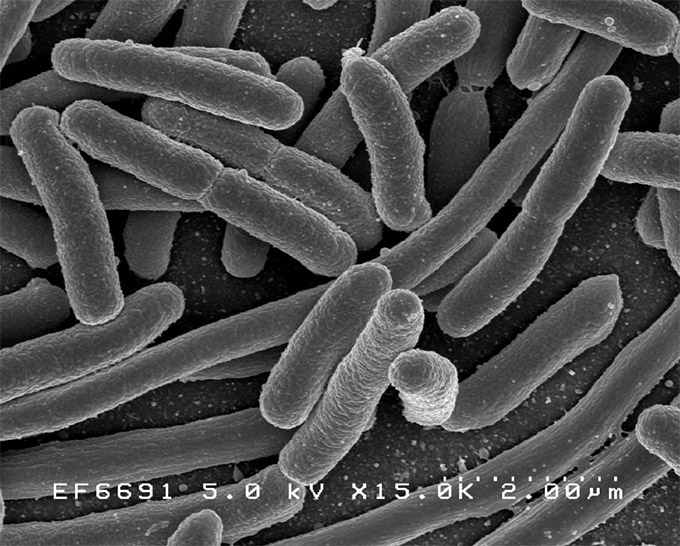The digestive system and immunity seem like an unlikely pair, but they’re actually directly related to one another. Using the analogy of ‘soldiers’ and ‘civilians’ Dr. Bristow offers an in depth view of the immune responses that take place in the digestive system, and in the body as a whole, to fight off unwanted virus’ and bacteria. Your body may have all the tools it needs to fight and heal, but it’s up to you to create the foundation it needs to flourish!
The digestive track is the most important part of your immune system, it can be hard to understand how it works, so I’ve created an analogy to explain how the immune system in the gut protects, responds and hyper-reacts to what we send down into our body. It’s quite literally the barrier between the outside world and your internal body.
There are two main components of the immune system in the gut:
- The first line of defence called TH1 (T-cell helper type 1) that we’ll call the soldiers
- And a second line of defence called the TH2 immune system that we’ll call the civilians
The first line of defence–the soldiers-is responsible for protecting you from what enters your gut; things in your food, pollutants, chemicals, perfumes, cosmetics, etc.
Bifidobacteria (a group of healthy bacterial flora that normally live in the intestines), activate the soldiers of the immune system by feeding the white blood cells, which are the main protection of the gut wall. These soldiers are super important, so they need to eat the healthy flora! Without it they become weak and hungry, preventing them from producing antibodies (lgA)–we’ll call these army scouts (which notice and cling to the virus/foreign substances), and eating unwanted molecules. These soldiers protect the gut wall made up of a thick layer of cells, which create a tight and strong barrier. This wall with its flora layer and front line soldiers are the key to health, which only allow particular things through the body. If these soldiers are weak and unable to do their job, it can lead to the destruction of the guts crucial walls, allowing invaders to pass directly into the bloodstream.

These soldiers engage in one-on-one combat; they gobble up anything bad that comes into the system. They create army scouts, which deactivate infectious molecules, and then eat them up! These army scouts are part of the lining within your digestive system, bladder, nose, vagina, breathing passages, throat, and sinus cavities. Their job is to destroy bacteria, fungus, parasites and viruses. Another reason why the soldiers are very important is because they have an amazing memory: once they have eliminated something, they remember it in the future, and so they are able to eliminate the invading party even faster the next time it is encountered!
If the soldiers fail in their tasks and the infection reaches the bloodstream, the second line of defence (the civilians), try to pick up the slack. Although having a second line of defence is needed, it is not nearly as effective or powerful as the first line (soldiers) at expelling something that it really doesn’t know how to get rid of. The civilians help create different army scouts (antibodies called IgG and IgE) to deal with it. Some army scouts specifically notice food sensitivities. However, depending on several factors, it takes them some time to actually notice them (from an hour to a week). When the civilians get involved, it’s a whole body response–invading molecules are no longer being neutralized in the gut. When the civilians are at work, it’s very common to be sensitive and react strongly to things within the environment beyond just food, including: smoke, perfumes, chemicals, noise, light, molds, metals, etc.
Imagine your body as a castle, the big enclosing stone wall is the digestive system mucous membrane. The TH1 immune system white blood cells are the soldiers on the wall; they have the best training and weapons. This is who you want defending your castle! If the castle walls are breached and the enemies make their way inside, it leaves the civilians to defend the entire castle and themselves. The civilians are not equipped for battle; they haven’t been trained for it and they aren’t equipped with the right weapons. If the soldiers are killed, the civilians have to go into battle and that is when things can get messy. If it takes 100 civilians to kill a pathogen that could have been killed by a single soldier, there will be significant losses to these civilians, and not to mention a lot of damage done to the castle. In medicine, we call this an overactive immune response.
Sounds like quite a bit of work, huh? It can actually be relatively simple and straight forward if you have the right tools and timing. And remember: your body’s ultimate goal is to heal, but it’s up to you to set the stage.
If you have issues with your digestive or immune system, react to foods, or react to environmental or chemical molecules that seem unusual, speak with a Naturopathic Doctor about how to revert this process. I offer complementary 15 minute consultations if you’d like to learn more about it. You can book one of these or a full appointment with me here.
